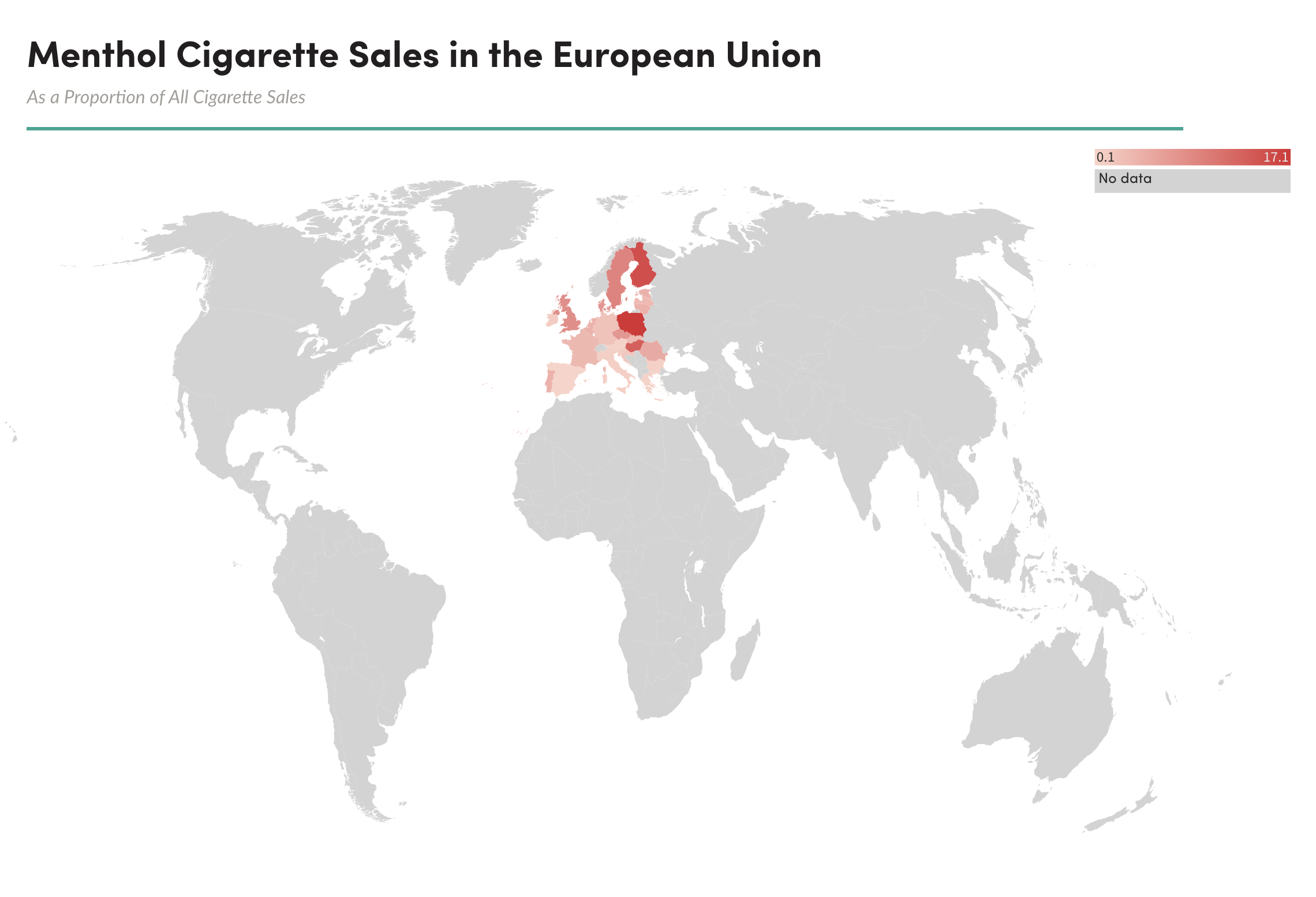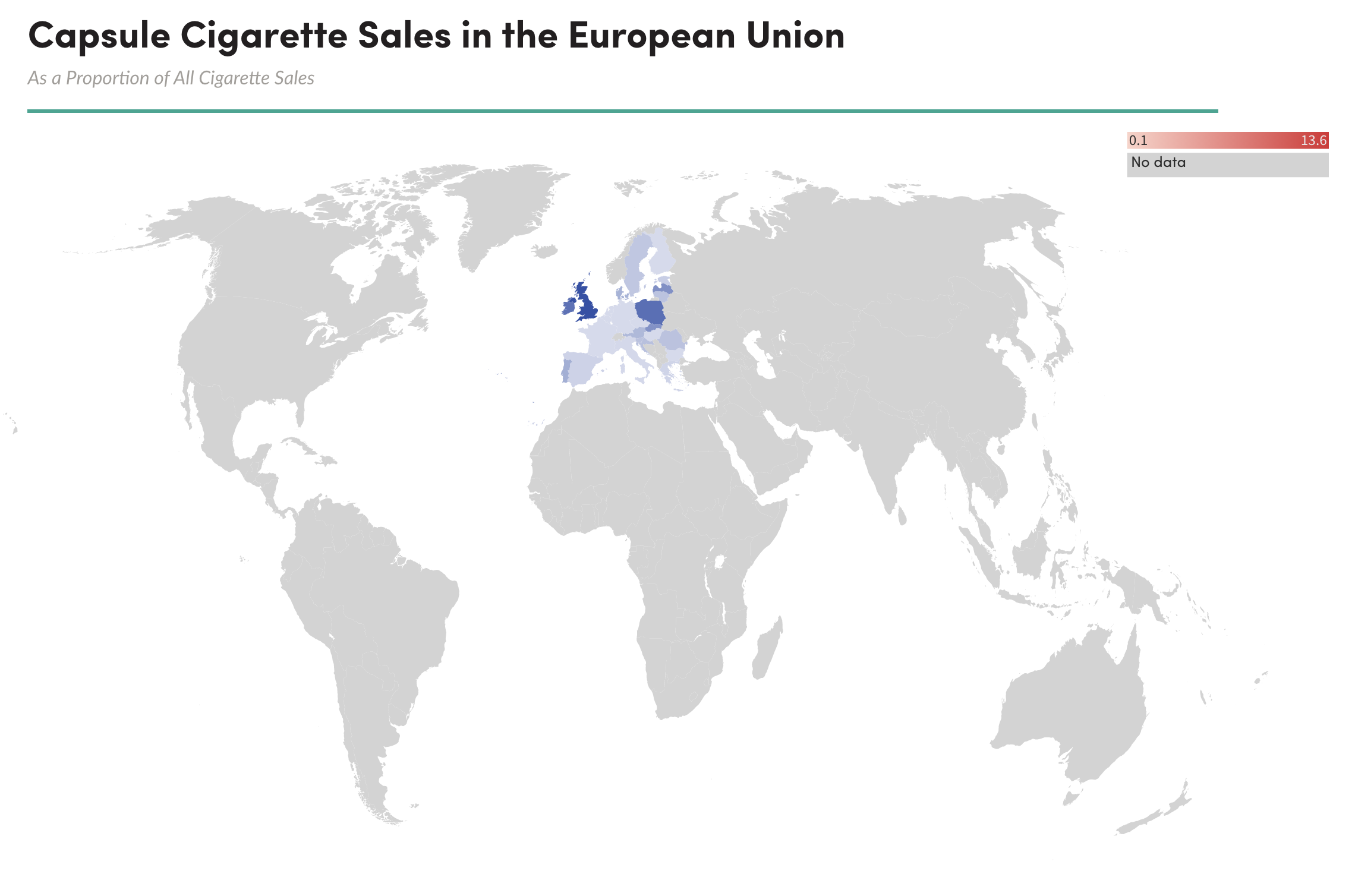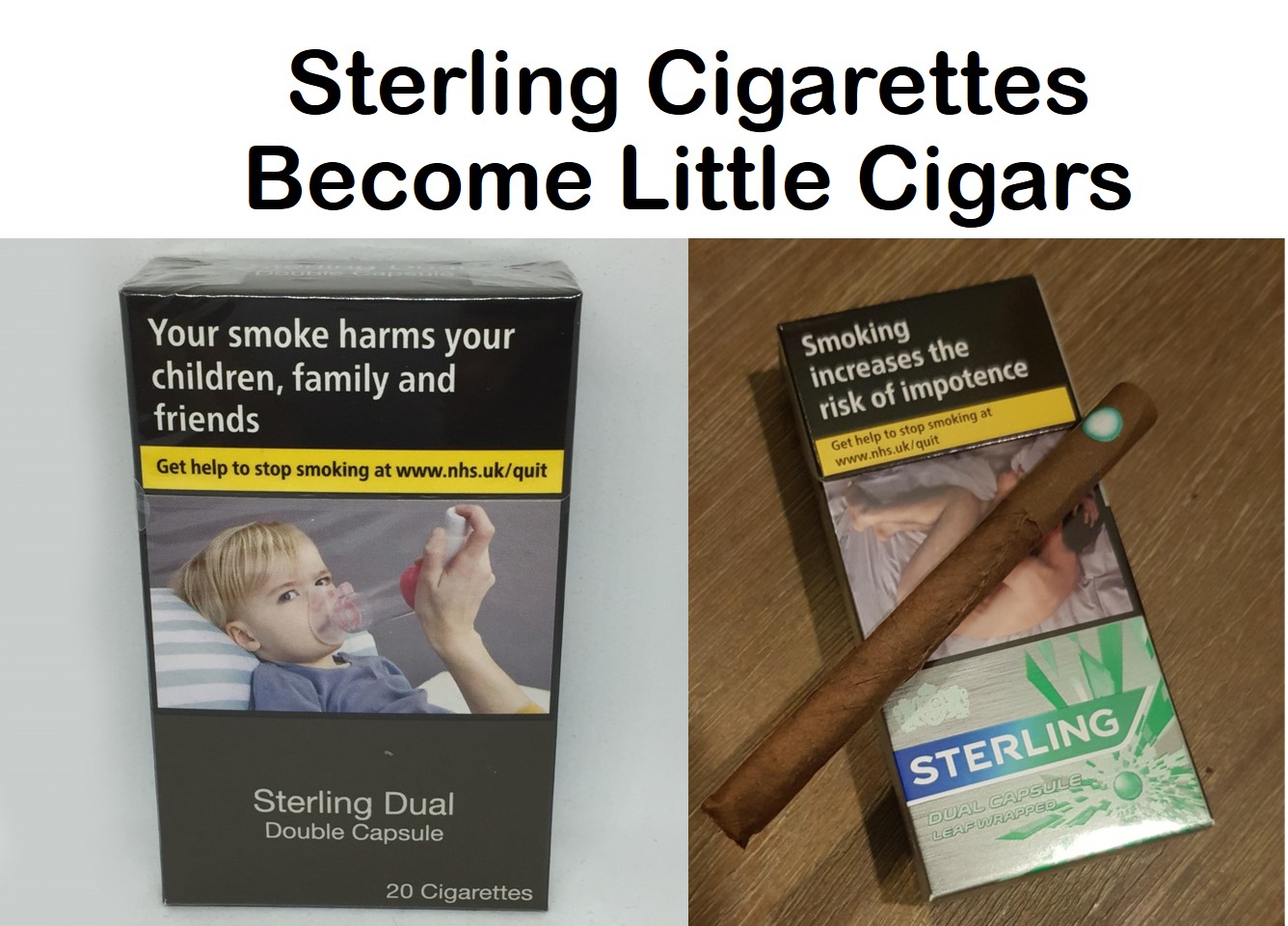In May 19, 2014, the Revised European Union Tobacco Products directive came into force. Among many other policies that regulated one of the world’s largest economies, the directive stated that in six years’ time the sale of flavored cigarettes would be banned in member countries. Today, over the objections of tobacco companies claiming that COVID-19 prevented them from selling off their remaining stock of menthol cigarettes, the flavored cigarette ban is coming into effect. This action conforms with WHO recommendations to ban the sale of cigarettes with characterizing flavors. By masking the harshness of smoke, flavors in cigarettes, particularly menthol, ease smokers’ transition from being experimental to regular smokers. These countries are following the lead of Brazil, Canada, Chile, Ethiopia and Turkey who completely banned the sale of flavored cigarettes over the preceding decade.
In 2018, tobacco companies sold 31.4 billion flavored cigarettes in European Union countries. Starting today, no cigarette with a characterizing flavor can be sold in these 28 countries. Even though the UK left the EU earlier this year, it is still going forward with enforcing this measure it agreed to when it was still an EU member. Menthol cigarette smokers in the EU are more likely to be female, younger, better educated and wealthier than other smokers. Menthol cigarettes have been perceived as less harmful than other cigarettes and are even (mistakenly) believed to have medicinal properties by some smokers. Smokers perceive capsule cigarettes to be more attractive, better tasting, and less harmful to health than cigarettes without capsules. The ban on flavored cigarettes should rectify misplaced perceptions of risk and may end up decreasing smoking rates among young people.
In 2018, flavored products made up 6.8% of cigarette sales in the EU, split into about two-fifths capsule cigarettes and three-fifths menthol-flavored cigarettes. Some countries will barely notice any change to the cigarettes for sale on store shelves. In Germany, Greece, Italy, Spain and Bulgaria, 2% or fewer of cigarettes sold are flavored, so smokers there may not notice any change at all. By contrast, in Poland, the United Kingdom, Finland and Hungary more than 12% of cigarettes are flavored. That figure increases to 27.6% in Poland, the highest of any member in the bloc. In Ireland, the ban will mostly eliminate capsule cigarettes from the market, as capsule cigarettes dominate the flavored cigarette market. In Sweden, the ban will mostly affect menthol cigarettes, where for every four menthol cigarettes sold, only one capsule cigarette is sold.


In response to the ban on flavored tobacco products, tobacco companies are attempting to sell workarounds to their customers. Imperial Tobacco is selling a cardboard strip that imbues the cigarettes in a pack with menthol oil. Japan Tobacco is adopting the same tactic that Indonesian tobacco companies used to avoid the United States’ 2010 ban on the sale of clove-flavored cigarettes; they are switching flavored cigarette brands over to small cigars by changing the product’s wrapper from paper to reconstituted tobacco leaf.

We don’t know the full extent of the effect of this policy yet on public health, but the EU flavor ban will prove to be an excellent source of data on the effect of a tobacco product flavor ban for other jurisdictions considering such a policy. The Canadian menthol ban has increased cessation rates among those who smoked menthol cigarettes and the evidence suggests that illicit trade volumes have remained under control.
Poland and the United Kingdom will prove to be particularly important to watch because they are the jurisdictions with the highest shares of flavored cigarette sales to ever attempt such a policy. Policymakers and agencies implementing the ban will monitor the bans closely, including the tobacco industry’s claim that illicit trade will run rampant.